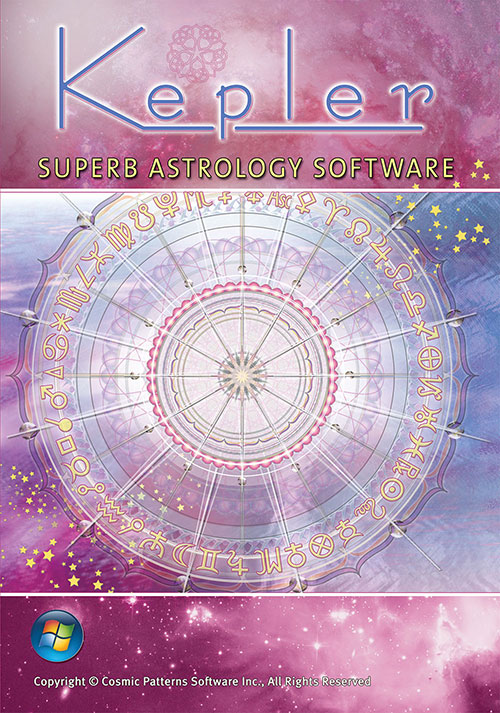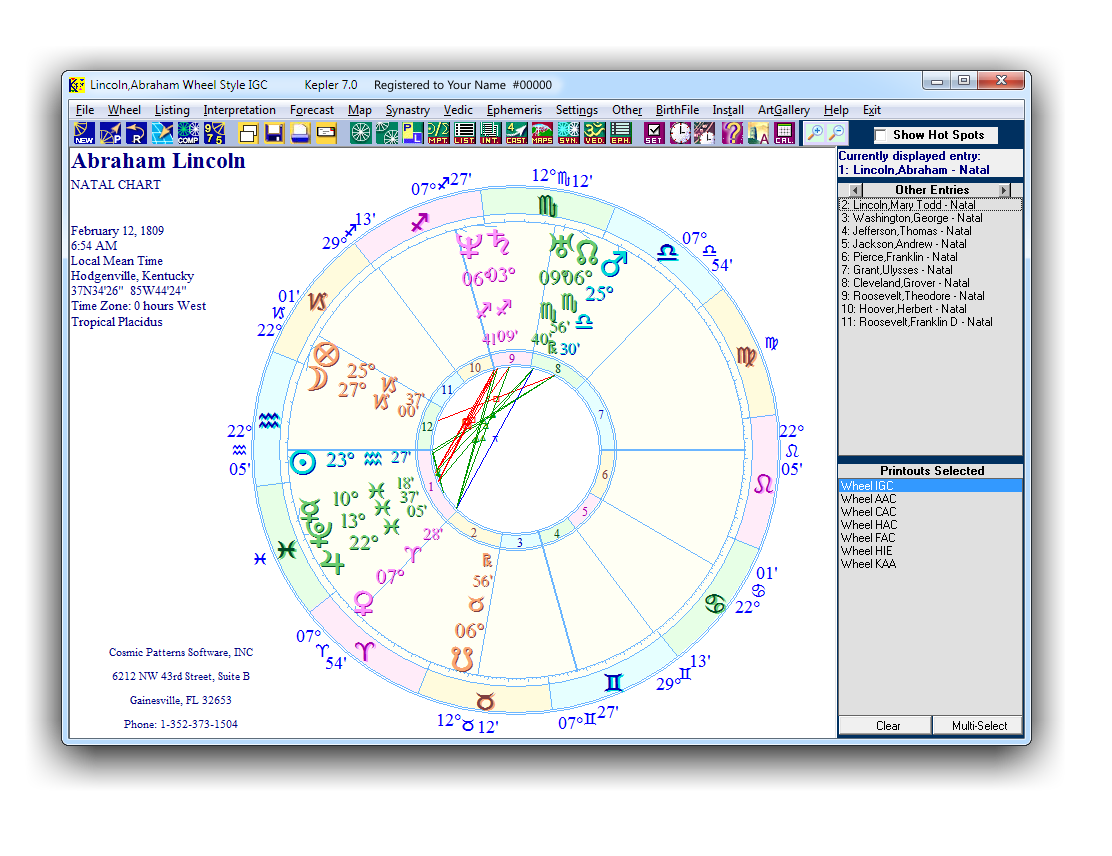

This private exchange, where no financial gain was involved, reveals that Kepler's interest in astrology was unquestionably sincere. In two private letters, Kepler discussed the horoscopes of his family and the astrological reasons for his son's death.

It clearly shows the positions of the houses and the signs. In 1999, an astronomer found a horoscope drawn up by Kepler. In Kepler's re-analysis and rectification of the chart for Albrecht Wallenstein, a Bohemian General, on 21 January, 1625 Kepler refers to the Moon in 12th house and Venus square the ascendant.This confirms that he had not abandoned the triplicitities (and hence the associated zodiacal signs) in the previous century as he had claimed.

In 1603, Kepler saw significance in the Jupiter/Saturn conjunction falling in a different element.The causes being Venus and Mercury in Sagittarius. In his prognostication for the Winter of 1618 - Kepler writes ". He was not averse to using signs in his analyses. Though Kepler expressed concern to Michael Maestlin that his work on Alamanacks would harm his scientific reputation, Kepler continued to publish these astrological predictions up until 1624.He was also aware of Harriot's criticism of astrology and was clearly attempting to recast astrology within what he thought might be a more acceptable Harmonic-Pythagorean framework. Kepler was seeking information from Harriot on his experiments in refraction. However, Kepler's public comments may not have been a genuine reflection of his personal view of astrology: On the face of it, these widely quoted comments promote a popular myth that Kepler did not 'believe in astrology' and sought to destroy the 'superstition' but had to practice astrology simply to pay the bills. and I am retaining only the aspects (angles) and am transferring astrology to the science of harmonics." Ten years ago, I rejected the division into 12 equal signs, the Houses, dominations (i.e. I ask you if you believe that it could be powerful enough to have such power. "I am informed that misfortune came to you from astrology. In 1606, Kepler wrote to Oxford scientist, Thomas Harriot:

In line with the changing times, he wanted a reformation of astrology but, he implored theologians, physicians and philosophers not to 'throw the baby out with the bathwater'. He described himself to his mentor, Michael Maestlin as a 'Lutheran Astrologer' and claimed that 'Many of the rules of this Arabic art amount to nothing'. Yet, Kepler was also critical of astrologers at a time when judicial astrology appeared to be no more than fortune-telling in an increasingly rational academic world. In 1601, he wrote De Fundamentis Astrologiae Certoribus in which he "defends on physical grounds concerning the foundations of astrology. Kepler earned a living reading horoscopes for the rich and powerful, produced Yearly Almanacs with astrological and other phenomena, introduced three new aspects to astrology and connected the tidal cycle with the Lunar Nodes. Historian, John North claims ' had he not been an astrologer he would very probably have failed to produce his planetary astronomy in the form that we have it.' However, Kepler's views on astrology were ambivalent. Johannes Kepler ( - 1630) was an astrologer, astronomer and mathematician. Kepler and Astrology: a sceptical astrologer Johannes Kepler and Astrologyĭid Kepler he use astrology merely 'to pay the bills' or was he a sceptical astrologer?


 0 kommentar(er)
0 kommentar(er)
